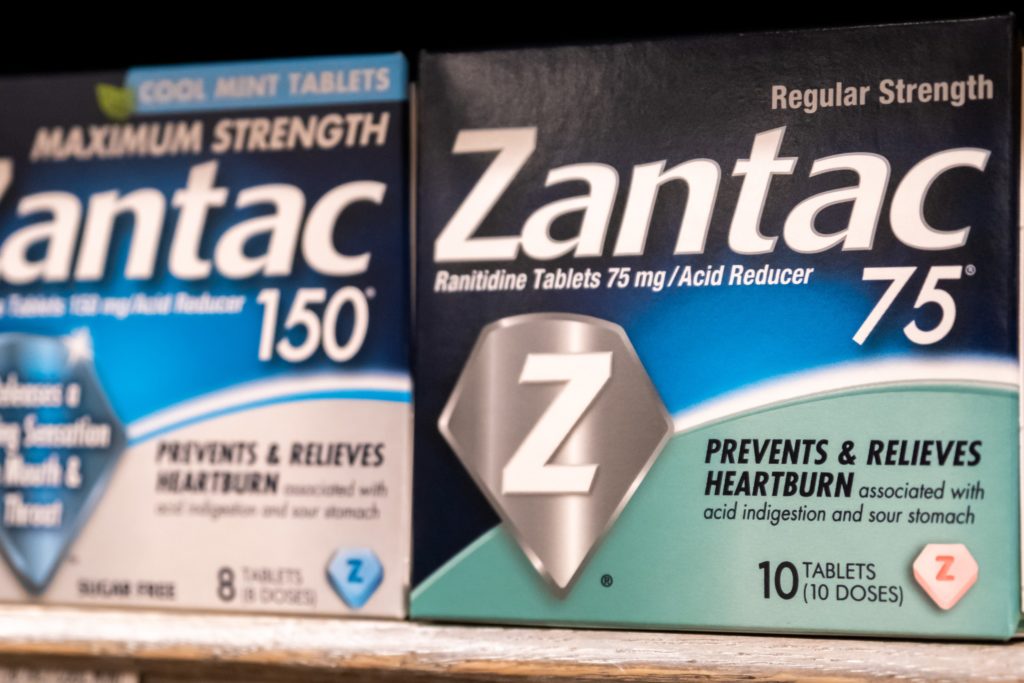FDA Bans All Zantac (Ranitidine) Drug Products From The Market

On April 1, 2020, the FDA instructed all manufacturers of the heartburn medication, Zantac and the generic form, ranitidine, to remove the products from the market immediately. Based upon the FDA’s ongoing investigation, levels of a carcinogen in the heartburn medication increases over time and when stored at higher than room temperatures pose a risk of cancer. As a result of this immediate market ban, Zantac and ranitidine products will not be available for new or existing prescriptions or over-the-counter use in the United States.
What is Zantac (ranitidine)?
Ranitidine (also known by its brand name, Zantac, which is sold by the drug company Sanofi) is available both over the counter (OTC) and by prescription. It belongs to the class of drugs known as H2 (or histamine-2) blockers. OTC ranitidine is commonly used to relieve and prevent heartburn. Prescription strengths are also used to treat and prevent more serious ulcers in the stomach and intestines.
Multiple companies sell generic versions of both the OTC and prescription products.
Zantac Lawsuits – Cancer Causing Ingredients
Zantac has been on the market since 1983 and generic (ranitidine) has been on the market since 1994. Over-the-counter Zantac was approved by the FDA in 1995. Recently, testing performed by private groups and the FDA revealed extremely high levels of NDMA in Zantac and accordingly, numerous companies have recalled Zantac.
What is NDMA?
NDMA is a member of the class of chemicals known as N-nitrosamines. When studied in animals, NDMA exposure resulted in lung, liver, kidney, stomach, digestive tract, colorectal, bladder, prostate, and pancreatic cancer.
The FDA established a permissible intake level of 96 nanograms of NDMA per day as “reasonably safe.” One filtered cigarette contains between 5 to 43 nanograms of NDMA. The testing performed by private groups revealed shocking levels of NDMA in Zantac.
The high levels of NDMA in Zantac are a result of the drug reacting with itself, meaning every dosage and form exposes users to NDMA when the nitrite and DMA group contained within the ranitidine molecule combine.
Injuries Caused by Zantac
Long-term use of Zantac can lead to:
- Bladder Cancer
- Breast Cancer
- Colorectal/Intestinal Cancer
- Esophageal Cancer
- Liver Cancer
- Lung Cancer
- Pancreatic Cancer
- Prostate Cancer
- Stomach Cancer
Because Zantac has been advertised as safe for use during pregnancy, prenatal exposure can lead to cancer as well.
Zantac Lawsuits
If you or someone you know has taken Zantac and experienced any of the cancers listed above after use of Zantac, you may have a potential lawsuit against the manufacturers of Zantac. The lawyers at Moore Law Group offer a free, no-obligation consultation and evaluation of your potential Zantac lawsuit.